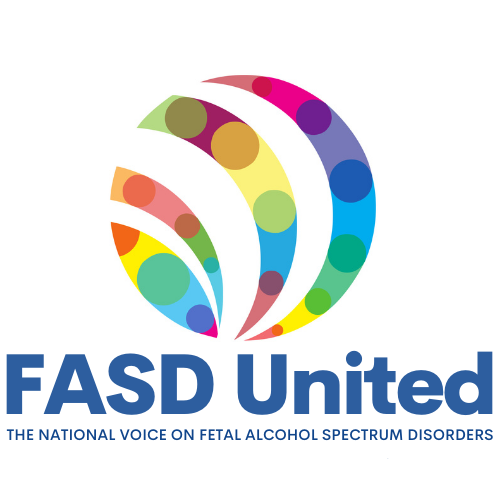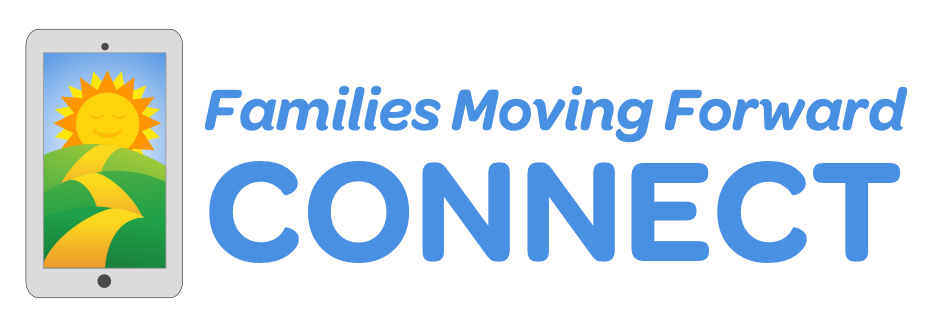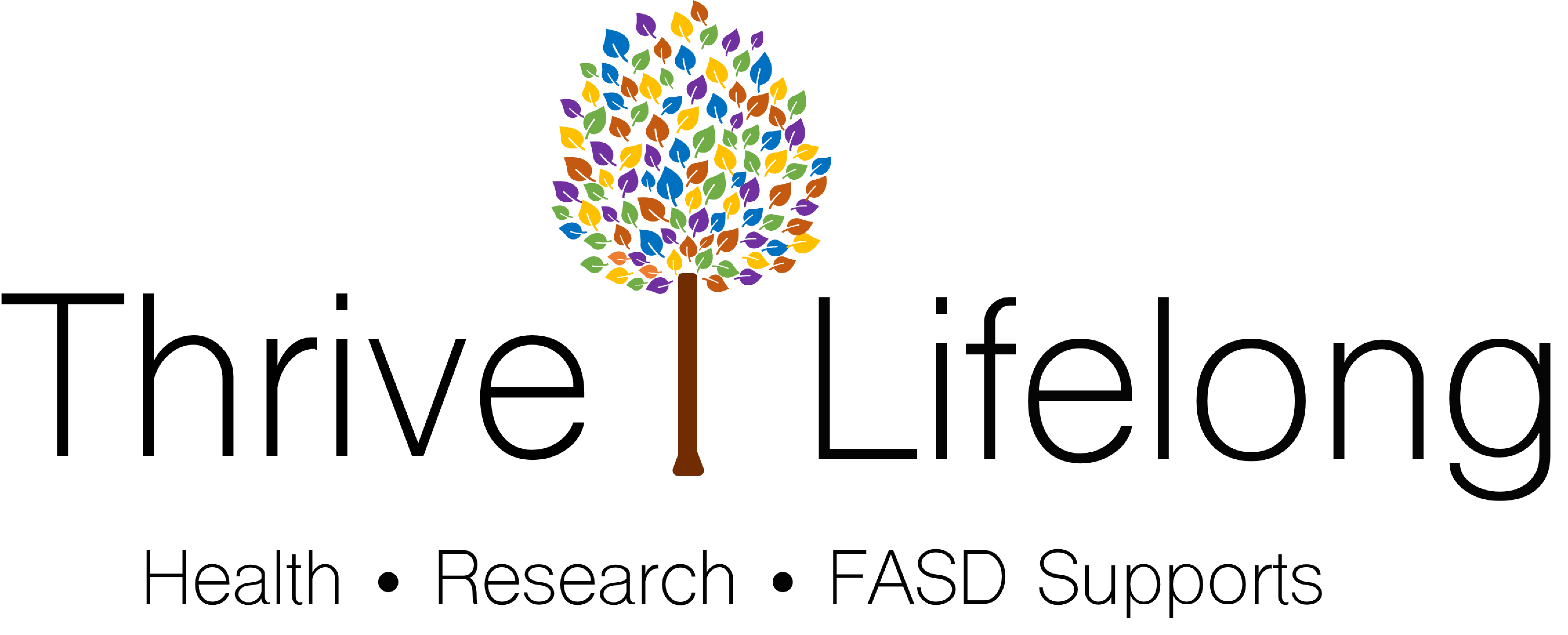Newsletter - October 2021

Tip of the Month
For self-care to do its job, consistent practice or repetition is needed! It can be easy to feel like there is no time for self-care. This is especially true when you are busy. Remember: self-care can even be a small activity that takes only a couple of minutes a day. One parent compared self-care to being on an airplane: “You can’t help your child with their mask until you have first put on your own!” Think about how you can build in moments of self-care in your day.
#FASD Strong
Much of the story about FASD in the media and in research focuses on the problems and barriers. Only focusing on the negative can make the stigma surrounding FASD worse. Dr. Christie Petrenko at Mt. Hope Family Center is trying to change this. She wants everyone to see the strengths and capabilities of people with FASD. People with FASD can thrive when provided the right supports.
In honor of FASD Awareness month, Dr. Petrenko ran a Twitter Campaign called 30 Days of #FASDStrong in September. Each day, she highlighted a different individual with FASD or supporter doing great things. This included sharing the strengths and successes of individuals with FASD, as well as the great advocacy work that people and organizations have accomplished. On September 30th, the last day of the campaign, Dr. Petrenko shared a short film called #FASDStrong profiling 3 people with FASD and their families. From the film, “we are trying to show the full humanity of people with FASD and build support to help them thrive!” You can watch the film here:
https://vimeo.com/debergeracproductions/review/617294732/a46718c56d
Please join us using the #FASDStrong hashtag and advocate for FASD!
My Health Coach Enrollment

Adults needed for Fetal Alcohol Spectrum Disorder (FASD) mobile health app research!
Are you 18 years or older and been diagnosed with FASD or known prenatal alcohol exposure? You may qualify for this study!
University of Rochester’s researchers are partnering with the Adult Leadership Committee of the FASD Changemakers to develop a new app for adults with FASD. This app will provide resources, tools, and information to improve physical health and quality of life for adults with FASD or known prenatal alcohol exposure.
Participate in a focus group to provide feedback on initial app development and receive monetary compensation.
In practical terms, the FMF Program lasts for about 6 to 9 months, and sometimes a little longer. Visits can occur weekly, or every other week. Services can be offered by telehealth. Depending on the family’s insurance, FMF Program services are often covered as mental health services. The biggest limitation right now is that there are not enough trained FMF Specialists. Clinicians are invited to look into training, which is offered for a fee similar to other evidence-based practices. Families are invited to talk to their therapists and counselors about getting trained. Training can be done virtually. Training takes about 6 days plus follow-up supportive clinical consultation to really learn the practice.
Please email Emily_Speybroek@urmc.rochester.edu if you have any questions.
Research Corner
Resilience Resources and Emotional and Behavioral Functioning Among Youth and Young Adults with Fetal Alcohol Spectrum Disorder
Katrina Kully-Martens, Jacqueline Pei, Allison McNeil, and Carmen Rasmussen
Published online: October 8, 2021
Researchers from University of Alberta, Canada were interested in the resilience resources that youth and young adults with FASD have. There are 2 types of resilience resources: individual and environmental. Individual resilience resources are usually personal characteristics and skills. Environmental resilience resources can be further divided into relational (e.g. relationships with parents and friends) and contextual (e.g. community, education).
The researchers were also interested in how these resources related to the youth’s adverse childhood experiences and their current emotional and behavioral functioning. Nineteen youth and young adults (aged 13 to 23 years) with FASD and their caregivers were recruited, and they separately completed the questionnaires.
The study results showed that compared to low-risk Canadian youth, youth with FASD had similar relational resilience resources, but lower contextual resources. This means both caregivers and youth believed that they had strong relationships, but the youth with FASD were still facing more environmental adversity than their low-risk peers. Caregivers and youth differed in the views of individual resilience resources. Youth with FASD reported they had comparable individual resilience resources relative to low-risk youth while caregivers reported the youth had lower individual resilience.
The researchers didn’t find significant relationships among resilience resources and early childhood adversity, age, sex, and IQ. However, they did find that the earlier a child had an FASD diagnosis and a stable home environment, the child was more likely to have better environmental resilience resources. They also found that greater individual and environmental resources were associated with less mental health symptoms and better adaptive functioning.
These findings once again highlighted the importance of early diagnosis and a stable home environment, as well as the need to provide and improve individual and environmental resources.
NOFAS Rebrands Name to FASAD United

NOFAS officially changed their name to FASD United! Find their new social media with their usernames below.
Website: http://fasdunited.org
Twitter: @FASDUnited
Facebook: FASD United
Instagram: @fasdunited
FMF Connect RCT Announcement

Exciting news! The FMF Connect study is getting ready to launch its Randomized Control Trial (RCT) for the app!
The RCT is expected to begin in mid-late November, so look out for the link for enrollment in the next newsletter!
To learn more about the app, what the study is about, and criteria for enrollment, please visit the FMF Connect website. Please email fmfconnect@urmc.rochester.edu if you have any questions or would like a personal email when the trial enrollment goes live!
Halloween Safety Tips

If you’re a family who celebrates Halloween, it’s important to stay safe during your Tricks and Treats! Whether you’re staying at home or roaming the neighborhood for cany, find ways to keep you and your child safe this spooky season!
For the Home
- Make sure there are no open flames near fabric or anything flammable
- Keep candles away from where people walk where fabric might come near the flame
- If you’re inviting trick-or-treaters, keep the walking path free of anything you can trip on and keep it well-lit
Costume Design
- Costumes should be loose so warm clothes can be worn underneath
- Have your child try on the full costume before Halloween to make sure the fabric isn’t itchy or uncomfortable
- Check the costume length so tripping isn’t a problem
- If children are out after dark, attach some reflective tape to the costume or have them wear glowsticks so they are visible
Trick-or-Treating
- Plan out your trick-or-treating route ahead of time and in familiar neighborhoods
- Establish a return time
- Pin a slip of paper with the child’s name, address, and telephone number somewhere on the costume incase the child gets separated from the group
- Supervision is key!
- Remind child that we only trick-or-treat at houses that are well-lit
- Walk, don’t run to or away from houses- there are a lot of things that we don’t see right away that we can trip on
- Walk on sidewalks, not the street (or on the left side of the road, facing traffic, if there are no sidewalks)
Treats
- Give children an early meal before going out
- Have children wait to get home before eating candy
- Inspect all candy and throw out anything that is unwrapped, partially unwrapped or has a strange odor, color, or texture
- Wash fruit and cut into small slices
